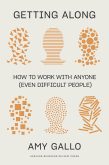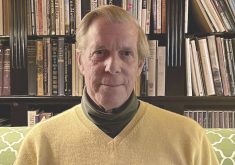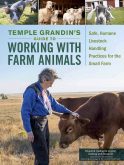There’s a bit of danger, or at least perceived danger, around setting a novel in the rural community that you live in. Especially when the blurb on the back of the book says something about “eviscerating small-town platitudes.”
A writer I know asked me, “Aren’t you afraid they’ll run you out of town?” She was being tongue in cheek, I think.
But I’m not really worried about being run out of town. I give my community more credit than that.
Still, writing about a tight-knit community does require thought. It’s not a decision that I made lightly when I was working on my novel, Friendly Fire. But I think it was the right decision.
Read Also

‘No agenda, no attenda’: How to professionalize your family farm meetings
Establishing meeting ground rules can help a farm family find ways to communicate that work for the business and the family.
The real danger of fiction in a real place
If you live in a rural community, you likely know the biggest danger in all this. It’s that people in your community will start looking for the real-life inspiration behind your fictional characters.
I suffered a bit of angst over this. My novel opens with the main character, Darby Swank, finding her Aunt Bea’s body floating in Brightsand Lake. The rest of the book follows Darby as she uncovers who killed her aunt. It’s a long look at violence against women and the consequences of turning a blind eye.
As far as I know, no one has ever dumped a body in Brightsand Lake. But violence and murder are as likely to happen in my corner of Saskatchewan as anywhere else.
For that exact reason, I didn’t want to base Bea, or her killer, on anyone I knew. I tried to build Bea, and most of my characters, from scratch. For example, I handwrote long passages from Bea’s point of view. That writing didn’t make it into the novel, but it’s the kind of thing that helps a character sit up and take her first breath.
When it came to naming central or controversial characters, I went through the local phonebook, crossing out local surnames as fictional possibilities. This may seem silly to some people, but I didn’t want to inadvertently hurt someone or fire up the rumour mill.
Some friends have told me they’ve been trying to figure out which locals I drew on for the characters. My standard response is: “Did you find yourself in there yet?” And then we laugh nervously.
But despite all this, some readers will see people they know in the book. I’ve already heard this from readers in other towns.
How is it possible for readers to see people they recognize in fictional characters? I think there are two reasons for this. For one, even if characters are drawn from thin air, if they are at all realistic, they will resemble real people. The other is that readers bring their own experience to a book. They think, “Oh, wow, that sounds like my Aunt Martha.” Or, “That happened to me.” Or, “I’ve been to a country hall dance like that. I know those people.”
Of course, even if readers bring their own experiences to the book, that doesn’t necessarily mean they’ll like it. It might be a simple matter of taste. It might be that the tragic situations in the book are a little too familiar. It could be any number of other reasons.
Writers don’t have any control over that reaction. And ultimately that’s not a bad thing, because to me it’s one of the most interesting parts of the publishing process.
I do know that I created these characters in good faith. I don’t look down on them. I found moments of empathy for all of them. And although the book takes a stand against violence, it’s not a condemnation of my entire community.
Why do it?
While the characters in Friendly Fire are fiction, the places are very real. The church that Bea and her husband live in was a family home at one time. Moosehead School, a one-room schoolhouse, really is left open to visitors, a small testament to rural trust.
Even the fictional forest fire is loosely based on a real fire that burned several cabins and homes on the shore of Turtle Lake in 2002. I didn’t fight it day in and day out, but I did for one night, hauling five-gallon water pails and driving the water truck.
I remember commenting on the spooky, red moon with a neighbour. Other local people, along with government firefighters, spent weeks extinguishing the blaze.
Of course, I could have avoided some angst by creating a fictional town. Other writers have done this. If you’ve read Cool Water by Dianne Warren, you’ll remember the entire story was set over one day in Juliet, Saskatchewan. And if you’re from Saskatchewan, you know that Juliet doesn’t exist. Yet Warren crafted that fictional town so skilfully that I, and many people in my book club, recognized it. It was familiar to us.
So why didn’t I do the same? Well, for one thing, I’m not sure I could. Even if I’d changed the place names, Friendly Fire would still be set here.
If I didn’t know this community so well, I’m not sure that I could get away with it. But I grew up here, and after 10 years in the city, I returned here with my husband. I not only know this place, but I love it. I love the landscape. I love the people. I love hearing stories about ravens stealing golf balls or the time so-and-so lost a fight with a cat. There are many, many storytellers here.
When I set out to write this book, I wanted to pour the world I knew into it. All of it — the dark and the light. I wanted to see this place reflected in fiction.
But I don’t think that was the only reason I placed Friendly Fire in my community.
When I was a teenager, a family friend and local teacher, Bill Kresowaty, used to give me feedback on my writing. One day he told me that I didn’t have to come from a big city to be a writer. Maybe that sounds like a small thing, but it was important. I carried that insight in my pocket for years.
The thing is, it’s absolutely true you don’t have to live in Toronto or New York or London to be a writer. Sure, the big publishers are concentrated in big cities, but there are publishers doing great work in every corner of Canada. And there are wonderful writers living in both urban and rural communities.
In my area alone, we can claim novelist Rudy Wiebe and short story writer Edna Alford. Both have placed some of their writing in this part of Saskatchewan. And Edna, who still lives here, is my friend and longtime mentor.
What I’m trying to get across is that your stories matter. If you’re an aspiring writer, don’t feel that you’re at a huge disadvantage because you live in a rural community. Ultimately all that matters is what you put on the page.
Friendly Fire is available in soft cover and Kindle from Amazon and other retailers.
















